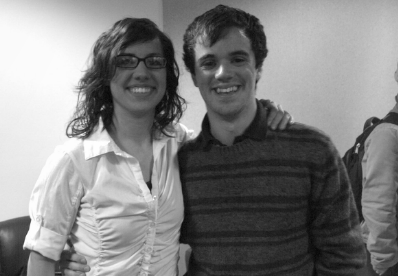For the first time since spring 2009, a primary election will be necessary in the race for Marquette Student Government president and executive vice president.
Primaries are only held in MUSG elections when more than two tickets, each composed of one presidential candidate and one executive vice presidential candidate, are running. This year, there are four tickets up for consideration. Before 2009, primaries in the executive election were necessary every year dating back to 2002.
This year’s primary will take place March 19 and will feature four tickets on the same ballot. Voting will be conducted online, and students will only be allowed to select a single ticket. The two tickets with the most votes will move on to the general election.
Junior Senator from the College of Arts & Sciences Samuel Schultz is running for president with sophomore Senator from the College of Arts & Sciences Zach Bowman as his running mate.
Michaela Tarpey, a junior in the College of Arts & Sciences, is running for president alongside Schroeder Hall Senator Thomas Schick, a sophomore in the College of Arts & Sciences.
Junior in the College of Arts & Sciences William Knight is also running for president, with Daniel Bresnahan, a junior in the College of Business Administration, as his running mate. Neither Knight nor Bresnahan have experience in MUSG.
There are also two freshmen running. Zach Dubois of the College of Arts & Sciences is running for president alongside Estefania “Ely” Elizondo, who studies in the College of Communication. Dubois and Elizondo also have no prior MUSG experience.
Joe Daufenbach, the current executive vice president and a senior in the College of Arts & Sciences, said the number of tickets on the ballot this year seems to represent an increased interest in MUSG participation.
“I don’t know if it’s people getting more used to the organization, or if it’s just us, that we’ve been promoting it more,” Daufenbach said.
Those in charge of running the election said the addition of the primary to the election season will affect the candidates more than anything else.
“I think that the primary will make this year’s election more competitive,” said David Kuester, a senior in the College of Arts & Sciences and the MUSG elections coordinator. “Candidates will be tested more than ever on their organizational skills (and their) ability to promote their respective platforms and connect with students.”
Even though there will likely be a candidate with a plurality of the votes in the primary, the election officials made it clear that it is necessary to get a full majority to win the general election.
“What you’re not having with (all four on the same ballot) is a majority of campus confirming that they want these candidates,” Daufenbach said.
Jon Dooley, senior associate dean for the Office of Student Development, said he believes the ticket that wins the most support in the primary will gain a distinct advantage in the general election.
“For the two tickets that carry on into the general election, the primary gives them an opportunity to see what level of support they have from students,” Dooley said.


